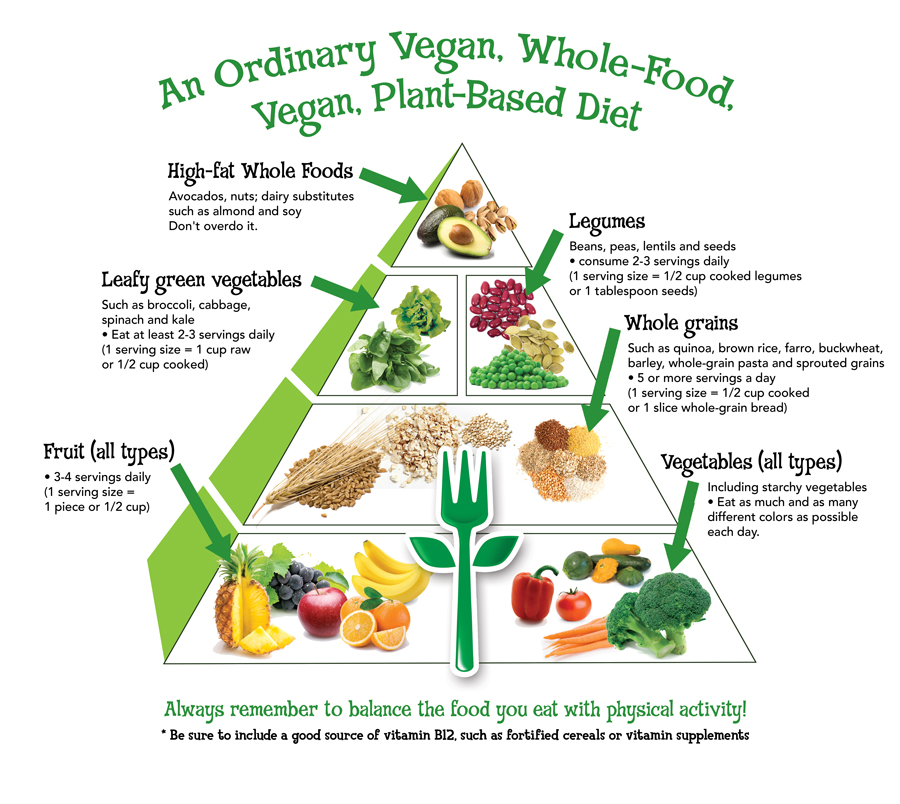Plant Based Beef vs. Traditional Meat: Which Is Better for the Environment?
Plant Based Beef vs. Traditional Meat: Which Is Better for the Environment?
Blog Article
All Regarding Healthy And Balanced Food: Advantages of Checking Out Plant Based Alternatives
The conversation bordering plant-based diet plans has actually obtained considerable focus in recent years. Many individuals are checking out the potential health and wellness advantages, nutritional advantages, and environmental influences connected with these dietary options. As individuals come to be more familiar with their food's impact on wellness and sustainability, questions emerge concerning the functionalities of taking on such a lifestyle. What particular modifications can one expect, and exactly how might these selections improve not just personal health and wellness but additionally the earth's future?
Recognizing Plant-Based Diet Regimens
Although many individuals associate plant-based diet plans generally with vegetarianism or veganism, these diet plans can include a wide variety of consuming patterns that prioritize whole, minimally processed plant foods. Such diets commonly include fruits, vegetables, whole grains, seeds, vegetables, and nuts, while eliminating or limiting animal items. This adaptability enables people to customize their nutritional options according to dietary requirements and individual preferences. Some might embrace a mostly plant-based diet plan while still sometimes consuming meat or dairy, often referred to as a flexitarian strategy. The focus continues to be on integrating more plant foods, which can result in a varied range of flavors and dishes. Comprehending these different interpretations of plant-based eating is essential for appreciating its accessibility and appeal in modern food society.
Wellness Benefits of Plant-Based Foods
The wellness advantages of plant-based foods are significant, providing a nutrient density advantage that supports general health. Research shows that these foods can improve heart health and wellness and play an important role in reliable weight administration. By integrating much more plant-based alternatives, individuals may boost their dietary choices and advertise long-term health and wellness.
Nutrient Thickness Benefit
Nutrient thickness plays a crucial role in the health benefits of plant-based foods, making them an engaging option for those looking for a well balanced diet. Plant-based foods, such as fruits, vegetables, legumes, nuts, and whole grains, are frequently abundant in essential vitamins, minerals, and antioxidants while being lower in calories. This high nutrient thickness enables people to consume less calories while still meeting their nutritional requirements. In addition, these foods are packed with dietary fiber, advertising digestive system health and assisting in weight administration. By integrating nutrient-dense plant-based alternatives, customers can boost their general wellness, support their immune systems, and reduce the risk of chronic diseases. Inevitably, the nutrient density of plant-based foods underscores their importance in a health-conscious way of living.
Heart Wellness Renovation
Weight Administration Assistance
Along with advertising heart wellness, a plant-based diet regimen can significantly assist in weight management. This nutritional approach emphasizes entire foods such as fruits, vegetables, vegetables, nuts, and entire grains, which are usually reduced in calories and greater in fiber contrasted to animal-based products. The high fiber material aids increase satiety, decreasing general calorie consumption. Moreover, plant-based diet plans are often rich in necessary nutrients while low in undesirable fats, making it much easier to maintain a healthy weight. Plant Based Beef. Research shows that people that take on a plant-based way of living tend to have reduced body mass indexes (BMIs) and experience even more effective fat burning contrasted to those who consume meat-heavy diet regimens. Embracing plant-based options is a strategic selection for reliable weight administration.
Nutritional Worth of Plant-Based Ingredients
Plant-based ingredients are rich in crucial nutrients, offering a diverse range of vitamins, minerals, and anti-oxidants that add to total health. A comparison of healthy protein sources reveals that while animal products are frequently considered as remarkable, numerous plant-based options supply ample healthy protein and various other useful substances. Comprehending the nutritional value of these ingredients can aid people make informed nutritional options.
Necessary Nutrients in Plants
Nutrient-rich active ingredients found in plants offer a diverse array of necessary vitamins and minerals that contribute considerably to general health and wellness. These components over here are abundant in vitamins A, C, and K, which support immune function, vision, and blood clot, specifically. Additionally, plants provide essential minerals such as magnesium, calcium, and potassium, critical for heart health, muscular tissue feature, and bone strength. The visibility of fiber in plant-based foods aids food digestion and promotes a healthy and balanced intestine microbiome. Antioxidants, discovered generously in veggies and fruits, help fight oxidative stress and anxiety and minimize inflammation. In addition, many plant foods are low in calories yet high in nutrients, making them an outstanding selection for those seeking to keep a healthy and balanced weight while guaranteeing excellent nutrient intake.
Comparing Healthy Protein Resources
Protein resources vary considerably in their dietary profiles, with plant-based components using unique benefits. Unlike animal healthy proteins, which usually contain hydrogenated fats and cholesterol, plant healthy proteins tend to be lower in these harmful elements. Legumes, nuts, seeds, and entire grains are abundant in crucial amino acids, fiber, vitamins, and minerals. Lentils provide high healthy protein web content along with considerable iron and folate, while quinoa is a complete protein, providing all nine essential amino acids. Additionally, plant-based healthy proteins are often come with by anti-oxidants and phytochemicals that support general wellness. The change to plant-based protein resources not only improves dietary intake yet likewise straightens with lasting dietary practices, decreasing environmental effect and advertising lasting health advantages.
Environmental Impact of Plant-Based Consuming
As understanding of climate change grows, numerous people are exploring sustainable nutritional choices that can considerably lessen their ecological footprint. Plant-based consuming has actually emerged as a substantial factor to decreasing greenhouse gas discharges, which are largely related to animals production. The farming of fruits, veggies, beans, and grains generally calls for less resources, such as water and land, compared to pet farming. Additionally, plant-based diet plans can bring about lowered logging, as less land is required for grazing animals or growing pet feed. By changing in the direction of plant-based alternatives, customers can sustain biodiversity and advertise healthier ecosystems. In general, embracing plant-based consuming not only benefits individual wellness yet likewise represents a crucial step towards ecological sustainability and conservation initiatives.
Conquering Common Misconceptions
While lots of individuals identify the advantages of a plant-based diet, numerous misunderstandings often prevent them from completely welcoming this way of living. A common belief is that plant-based diet plans do not have enough healthy protein; nevertheless, various plant sources, such as legumes, nuts, and tofu, give enough healthy protein. Furthermore, some assume that this diet plan is expensive, when as a matter of fact, staples like beans, rice, and seasonal veggies can be fairly budget friendly. Another mistaken belief is that plant-based eating is extremely limiting, whereas it actually supplies a varied selection of tastes and foods. Several stress that a plant-based diet plan may lead to shortages, yet with appropriate preparation, people can acquire all required nutrients, including minerals and vitamins, while delighting in a vast variety of delicious dishes. Broad Tips for Transitioning to a Plant-Based Way of life
Making the shift to a plant-based way of living can be an enhancing experience, though it frequently needs some advice to navigate the initial adjustments. Individuals are motivated to begin slowly, integrating more fruits, veggies, vegetables, and whole grains right into their dishes while minimizing meat and milk intake. Dish planning is crucial; preparing a regular menu can aid relieve the adjustment and stop last-minute harmful selections. Exploring brand-new recipes and cooking techniques can likewise maintain and improve the experience enjoyment regarding plant-based eating. Furthermore, signing up with assistance teams or communities can offer motivation and share beneficial ideas. Staying educated about nourishment guarantees well balanced meals, protecting against deficiencies while fostering a healthy and balanced, gratifying plant-based way of living.

Delicious Plant-Based Meal Ideas
Exploring scrumptious plant-based dish concepts can influence individuals to accept an extra nutritious diet plan. One popular choice is a passionate quinoa salad, including cherry tomatoes, cucumber, and a vibrant lemon-tahini dressing. Another fave is a tasty lentil stew, loaded with carrots, celery, and great smelling herbs, excellent for a soothing dinner. For breakfast, overnight oats made with almond milk, chia seeds, and covered with fresh berries provide a nutritious beginning to the day. In addition, a vibrant vegetable stir-fry with tofu and a variety of vivid veggies can be a fast yet satisfying meal. Ultimately, velvety avocado salute on whole-grain bread, sprayed with seeds and spices, supplies a simple yet tasty snack. These meals showcase the selection and richness check out here of plant-based consuming.

Regularly Asked Concerns
Can a Plant-Based Diet Regimen Give Enough Healthy Protein?
The inquiry of whether a plant-based diet regimen can provide sufficient healthy protein prevails. Various resources, including vegetables, nuts, seeds, and whole grains, can meet protein needs efficiently, supporting a balanced and nourishing diet plan for individuals.
Are Plant-Based Diets Suitable for Children?
The suitability of plant-based diet plans for youngsters depends on careful preparation. Ample nutrients need to be guaranteed, including minerals, vitamins, and healthy proteins. With correct assistance, such diets can sustain healthy growth and advancement in children.
Exactly how Do I Eat Out on a Plant-Based Diet regimen?
Eating out on a plant-based diet plan includes seeking restaurants with varied menus, asking for alterations, and checking out vegan-friendly choices. Preparation in advance and communicating nutritional preferences can enhance the dining experience while keeping nutritional options.
What Prevail Irritants in Plant-Based Foods?
Usual allergens in plant-based foods consist of soy, gluten, nuts, and seeds - BBQ Sauces. Individuals following a plant-based diet plan must be aware of these irritants and review labels thoroughly to avoid negative reactions and guarantee safe intake
Can Plant-Based Diets Assist With Weight Management?
Study shows that taking on a plant-based diet plan might help with weight management as a result of its normally reduced calorie density and greater fiber content. This mix can improve satiety, assisting people handle their calorie consumption successfully. Several people connect plant-based diet regimens primarily with vegetarianism or veganism, these diets can include a large variety of eating patterns that prioritize entire, minimally refined plant foods. Nutrient density plays a necessary role in the wellness advantages of plant-based foods, making them an engaging selection for those looking for a balanced diet plan. Plant-based diet regimens have been shown to substantially improve heart wellness, as they commonly have elements that support cardio feature. In enhancement to advertising heart health, a plant-based diet regimen can significantly help in weight monitoring. A visit homepage typical belief is that plant-based diets do not have sufficient protein; however, numerous plant sources, such as vegetables, nuts, and tofu, supply ample protein.
Report this page